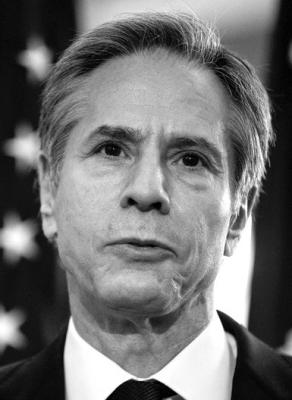China’s spying in Cuba picks up where the Soviet Union left off
For a half century, America’s top geopolitical rival used a spy base in nearby Cuba to steal U.S. military secrets by listening in on phone and data communications.
Twenty years after the Soviet Union shut down that post, China may be picking up where Moscow left off.
Beijing’s reported efforts at surveillance from Cuba are reminiscent of Lourdes, a Soviet-built listening post just south of Havana that once employed thousands of personnel to eavesdrop on sensitive U.S. phone and data communications. But where the Soviet Union sought ideological conquests in Cuba and throughout Latin America, China’s efforts are rooted in burgeoning economic relations.
The Biden administration has offered conflicting responses in recent days to a report that Cuba has agreed to host Chinese spy facilities on the island just 90 miles (145 kilometers) off Florida. After initially dismissing the report of a new arrangement as “not accurate,” the White House said a long-standing Chinese intelligence presence was expanded back in 2019.
Chinese Foreign Ministry spokesman Wang Wenbin said this week that “the alleged spy activities of China in Cuba” are false. “The U.S. has no chance of driving a wedge between China and Cuba. We are sincere friends.”
The question of surveillance from Cuba may add to the list of U.S. concerns as Secretary of State Antony Blinken prepares for a twoday visit to China aimed at stabilizing strained ties with the world’s second-largest economy.
Analysts say Chinese surveillance is one sign of President Xi Jinping’s ambitions to discomfit the Biden administration in Latin America, 200 years after the Monroe Doctrine declared the Western Hemisphere under exclusive U.S. sway.
From a space base in Patagonia, Argentina, to factories on the Mexican border with Texas, the People’s Republic of China and its companies have been establishing footholds in what’s been called the U.S.’s backyard. State-run Chinese banks have also lent more than $136 billion to the region.
Trade between China and Latin America, as well as the Caribbean, increased from $12 billion to $315 billion from 2000 to 2020, according to the World Economic Forum.
China treats Latin America as a proper trading partner, said Carol Wise, a professor of international relations at the University of Southern California, while the U.S. often approaches the region as “some kind of basket case where we have to run down there and chase narcos or guerrillas around.”
China’s inroads in Cuba also reflect the island’s desperation for cash, 60 years after President John F. Kennedy ordered more than 1,000 cigars to keep his humidor stocked — and then signed a trade embargo that has strangled the nation’s economy ever since. The prohibition became an emblem for resentment of the U.S. in Latin America and one more chip for China’s criticism of Washington.
Despite following Moscow’s precedent of surveillance from Cuba, China’s undertakings in Latin America differ in important ways. The Soviet Union sought to spread revolution and establish Marxist-Leninist regimes throughout the region, with limited success. Cuba was the great exception, and it came at a high cost to the Soviet economy through the subsidies it provided.
China is much less interested in ideology and more focused on buying commodities — iron ore and soybeans from Brazil, wheat from Argentina and oil from Venezuela.
At the same time, China benefits as Venezuela’s Nicolas Maduro continues to poke at President Joe Biden from Caracas, spurring concern from the US just as new American bases in the Indo-Pacific require attention from Xi.
China also continues to press countries to rescind diplomatic recognition of Taiwan, with Honduras the latest to do so.
Then there are the direct benefits to be gained from watching the U.S. — and spying on its communications — from nearby.
“Cuba and Latin America are a useful vantage point from which to observe the United States, given proximity and the long history of interactions,” said Ja Ian Chong, an associate professor of political science at the National University of Singapore. “Cuba specifically may permit the collection of signals intelligence given the presence of U.S. military bases in Florida and the southern United States.”
Confronted with the reports that China operates a spy post in Cuba, finger-pointing has begun in Washington.
Blinken, the top U.S. diplomat, said this week that former President Donald Trump’s administration didn’t do enough to counter Chinese efforts to boost intelligencegathering overseas after discovering that Beijing had been operating a spy facility in Cuba since 2019. Trump and former officials in his administration denied that, and Trump blamed Biden.
(Rebecca Choong Wilkins contributed to this report.)

